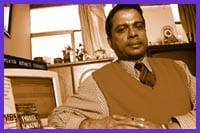Carmen Dupuis, an executive at American Express’ travel division in Montreal, says she’s “selectively out” at work.
In her 15 years with the company, she has referred two fellow queer friends, both men, from her social network to the company. She wouldn’t do the same for everybody.
“The work was sales oriented and that required a certain independence, being on the road, travelling most of the time,” Dupuis says. She has not referred other women to the company, though she knows dykes who have the qualifications and who have needed a job. It did cross her mind, but “the work required close relations with those who may not be sympathetic.
“I’ve been reluctant because it could backfire,” she says. “If they don’t work out, you’re dealing with the fact you may have outed yourself, and it reflects badly on my judgment skills which I imagine will affect my future promotions.”
Dupuis’s caution in putting her own job security over opportunity for friends or acquaintances shows that while queer mentoring relationships in the workplace are intensely cherished, they’re not always easy to find.
In fact, it seems the best place for gay and lesbian people to look for workplace mentors is… outside the workplace.
Getting a foot in the door is the first problem. Fraught with the percentage of job postings being so slight – according to author Mark Swartz, only one in 10 job openings are advertised externally – job-seekers must rely on word of mouth to get the goods. As Dupuis’s situation shows, this strategy creates a relative disadvantage for queers, as the gay employees in conformist companies may be reluctant to bring friends of Dorothy into the fold.
Once inside a workplace, it can still be hard to find other gay and lesbian people to build relationships with. Particularly in professions where few workers are out. While gay male nurses may be easily embraced in their chosen field, lesbian engineers, transexual chefs or gay hockey players are often left by themselves.
As a gay father working as a tax consultant and investment planner in Toronto, Ian Adams’s gaydar failed to indicate any signs of gay life during more than a dozen years in his field.
“I took the cue to see a gay psychiatrist after complaining about severe anxiety and stomach pains,” he says of his feelings of isolation.
Those who find queer peers often encounter relationships that are more fraught than are straight ones. US writer Annette Friskopp, co-author of the book Straight Jobs, Gay Lives, gives the example of senior employees who feel uncomfortable associating themselves with lower rank employees who “frequently get away with wearing lifestyle accessories such as piercings, hairstyles or earrings.”
As well, there is the common perception among co-workers that a gay worker might show favouritism to a fellow queer.
In the end, many people decide to go elsewhere for support.
Adams eventually ended up joining the social group for male professionals, The Fraternity, as well as the Pride Business Network, where he has been an active and high profile member for seven years. Adams says that in the conservative corporate world, organizations like these take the edge off. Here he can be mentored by others who understand the roles and demands of his field – without all the complications.
Tyrell Ignatius, also a Fraternity member, formed Mentoring Business Services in 1993 as a consulting business to help gay and lesbian professionals find mentors.
Though building a queer-positive network is important, Ignatius says it’s important to set out on the right foot. For example, he says the oft-asked “Do you have a boyfriend?” is too personal aquestion and is not an appropriate foray into a networking conversation.
His free website, www.gaymentor.com contains professional wisdom from the fields of marketing, horticultural science, accounting, financial planning, real estate and fine art. Though the website uses technology to pass out wisdom, Ignatius emphasizes person to person contact.
When everything clicks, mentoring can open doors. Work eluded Ken Christman for eight years, as he languished in what he thought was the final stage of his life in a small town.
Today he runs a company, Butt For You, that designs and markets men’s apparel for the “buttockly challenged” which accentuate both curves and egos for men.
“I found out I was HIV-positive in 1985,” Christman says. “I came down with full-blown AIDS in 1989.”
He was working as a sign installer, and was told to get his affairs in order. Instead, he threw himself into the business. It came together with a move back to Toronto and, help from his sister and friends, who provided support with planning, marketing and finance.
“If it wasn’t for the mentoring of friends, I wouldn’t be here,” he says.

 Why you can trust Xtra
Why you can trust Xtra


